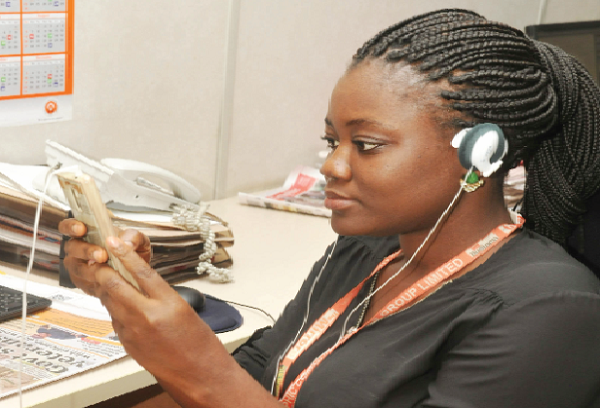
Inferior earpieces increasing ear problems
Ear-related diseases are increasing at an alarming rate partly due to the high patronage of inferior earpieces, a Principal Audiologist at the Korle Bu Teaching Hospital has indicated.
According to Ms Jemima Fynn, these inferior earpieces, which are widely available on the market and sold at cheap prices, are not able to regulate sound, thus exposing the eardrum to loud noise which eventually leads to hearing loss.
She said noise from earpieces, loud speakers and factories are among the leading cause of hearing loss in adults, adding that exposure to loud sound can cause ringing in the head or ear which sometimes continue consistently throughout a person’s life.
According to the World Health Organisation (WHO), over one billion people are at risk of hearing loss due to listening to music at loud volumes and for long duration.
Other causes of hearing loss in adults include ageing, recurrent ear infections, viral infections and associated metabolic diseases such as kidney disease and diabetes.
Hearing loss in children
She explained that children with hearing loss usually have delayed language development which can lead to poor performance in school if not addressed.
Ms Fynn advised parents to pay attention to their babies at their tender stage to identify signs of hearing loss.
“There are signs that indicate that a baby hears sound; in developing countries, new born hearing assessment is done before the child is discharged from the hospital but because we do not have such facilities here, parents must be proactive.
You should monitor the baby to see if he responds to banging of doors, music and other sounds in the environment.”
She stated that most children were able to pick up bits of languages in their environment before age two, so if a child finds it difficult to imitate language at that stage, there is the need to see a specialist.
Ms Fynn noted that survivors of tuberculosis and cerebrospinal meningitis (CSM) also have a high possibility of hearing loss after their treatment but most of them are left to their fate without screening for such signs.
Increasing rate
Data gathered since 2014 at the Korle Bu Teaching Hospital indicated that ear related conditions are among the top 10 diagnoses.
In 2016 alone, out of 1909 patients that had their hearing assessed, only 365 had normal hearing with the rest having varying degrees of hearing losses.
These figures exclude several industrial screening carried during the year where most staff showed signs of noise induced hearing loss.
Ms Fynn stated that till that date, most government health facilities do not have hearing assessment centres.
“Efforts have been made to have hearing assessments centres established at least at all regionals hospitals but this has not come into fruition.
“Currently, the three tertiary hospitals have some sort of functional facilities but do not meet the standards needed to function to full capacity,” she explained.
As a result, most patients have to travel miles to have hearing tests in Accra as some of the equipment needed for such tests are only available in Accra.
She said even after diagnosis, most patients are not able to afford hearing aids because of the high level of taxes imposed on them. “Currently, our main centres across the country have over 6000 patients waiting to receive hearing aids from donors.
“We solely rely on donors because there is no government policy or health insurance that covers hearing aids or treatment of hearing loss,” she said.
Caring for the ear
Ms Fynn advised against the use of cotton buds, pens and other objects for removing earwax as it contain special chemicals that fight infections in the ear.
Aside protecting and moisturising the ear canal, ear wax also acts as a shield between the outside world and the eardrum.
“If you feel any discomfort or pain in your ears, the best option is to see a specialist, most people also resort to buying ear drops without prescription from an audiologist. Some of these drops contain chemicals that could be harmful to the ear,” she noted.
World Hearing Day
The World Hearing Day is observed on March 3 every year to raise awareness and educate people on factors that cause hearing loss, as well as preventive measures.
This year’s event, which falls today, is on the theme ‘Action for hearing loss: make a sound investment’.
The event will be used to highlight the need for action on hearing loss by focusing on high cost of unaddressed hearing loss and cost-effectiveness of interventions.
Screening exercises will be held in some parts of the country to diagnose hearing diseases and offer treatment and advice.
